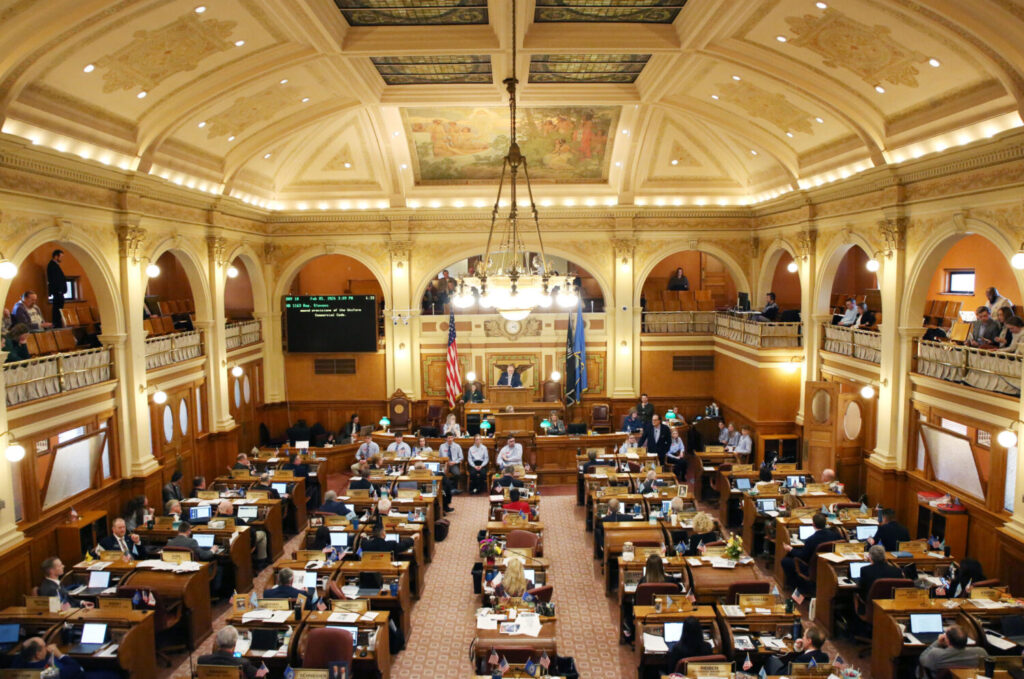
Joshua Haiar, South Dakota Searchlight
PIERRE — A bill that would increase tax credits for insurance companies to help low-income students attend private school earned final legislative approval Wednesday.
The House of Representatives passed the bill 56-13 and sent it to the governor for her consideration.
“This is about empowering students,” said Rep. Jon Hansen, R-Dell Rapids. “Particularly low-income students.”
The legislation would raise the total tax credit cap available to insurance companies from $3.5 million to $5 million. The tax credits on insurance company premiums are one-to-one for every dollar the companies donate toward private-school scholarships.
Students must meet the state’s free and reduced lunch program requirements to qualify for the scholarship program. About 2,500 students are supported by the scholarships.
The program’s supporters claim it saves the state money by allowing students to attend private school with money provided by an insurance company’s donations, rather than attending public schools with funding provided by state and local tax dollars. When challenged, those supporters have not produced data supporting the claim.
Opponents say students who were homeschooled or already attending a private school before receiving a scholarship are costing the state tax revenue it would otherwise get from insurance companies. Additionally, public school districts are potentially losing out on state funding if students leave public schools and go to private schools, because state funding is tied to enrollment.
Rep. Linda Duba, D-Sioux Falls, said the bill would result in “$5 million of ongoing general fund revenue being taken out” of the state’s tax revenue stream. She said the passing of the bill would result in using more “public fund dollars to fund private education.” Other opponents have described the program as a “backdoor school voucher program.”
Duba said the scholarship program was created as a compromise to help get South Dakota’s 2016 sales tax increase for teacher pay over the hump, “or that would have never happened.” Since then, she said, supporters of the program keep coming back for more tax credits.
At the time of the program’s creation in 2016, the tax credit cap was $2 million, and insurance companies earned 80% back in tax credits for every dollar donated.
A 2019 bill made insurance companies eligible for a 100% tax credit for total contributions. In 2022, lawmakers raised the tax credit cap to $3.5 million.
The names of the insurance companies and how much they are donating to the scholarship program is treated as confidential tax information by state officials. The private schools are responsible for ensuring students meet the income qualifications.
